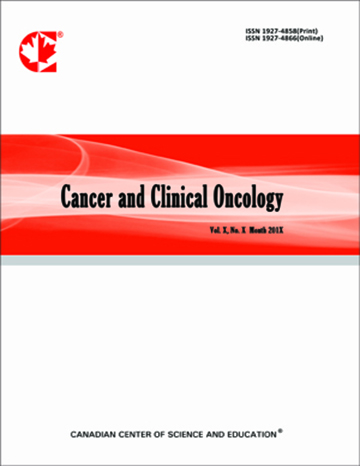The Impact of Weight Change During and After Post-Operative Chemotherapy on Breast Cancer Control in Node-Positive Patients Treated With Trimodality Therapy
- Joshua Johnson
- Bianca Lamb
- Andrew Mills
- Patricia L Watkins
- Vijay Chaudhary
- Jayaram Bharadwaj
- Tarek A. Dufan
- John Watkins
Abstract
Objective: The purpose of this investigation was to determine whether an association exists between post-operative chemotherapy weight change and breast cancer control and survival, specifically within a high-risk population of women with node-positive breast cancer diagnosed and treated in the contemporary setting.
Methods: A retrospective investigation with the following eligibility criteria: women who underwent primary surgical therapy for invasive breast cancer, were found to have pathologic evidence of nodal involvement, and were treated with adjuvant chemotherapy and radiation therapy. Demographic, tumor-, and treatment-related data were recorded and analyzed for association with disease control and survival outcomes. The post-operative/pre-chemotherapy weight and BMI served as the baseline comparator for future weight/BMI changes.
Results: From January 2004 through December 2008, 52 patients were identified for inclusion. At a median follow-up of 77.2 months (range 19.9–119.4, with 85% followed >5 years), 8 patients experienced disease recurrence and 7 patients had died (3 with recurrent disease). Analysis of factors associated with study endpoints identified absolute weight and BMI change at 1, 3, and 4 years post-chemotherapy completion as significantly inversely associated with overall survival, but not associated with freedom from failure. Additionally, a statistically significant association between number of lymph nodes involved and freedom from failure was identified.
Conclusion: This investigation did not detect statistically significant associations between weight or BMI change during chemotherapy and disease control or survival within this high-risk population, while the number of lymph nodes involved was directly related to risk of disease failure. Weight change at intervals following chemotherapy completion demonstrated some association with overall survival.
- Full Text:
 PDF
PDF
- DOI:10.5539/cco.v3n2p16
Journal Metrics
Google-based Impact Factor (2018): 3.94
h-index (August 2018): 8
i10-index (August 2018): 6
h5-index (August 2018): N/A
h5-median(August 2018): N/A
(The data was calculated based on Google Scholar Citations. Click Here to Learn More. )
Index
Contact
- Lexie GreyEditorial Assistant
- cco@ccsenet.org
